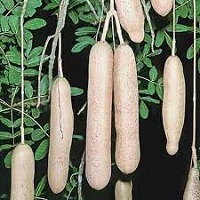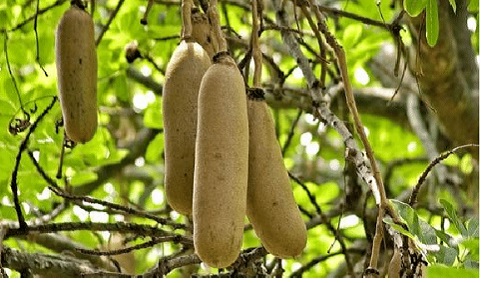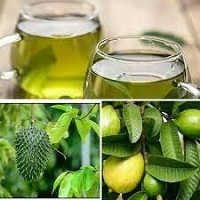Medicinal Uses and Health Benefits of Pandoro Fruit
Medicinal Uses and Health Benefits of Pandoro Fruit. Please watch >>>>
The medicinal and health benefits of pandoro in Nigeria cannot be overemphasized. It is used in other countries as well.
Pandoro is the Yoruba name for the Sausage tree, The Igbo name is Uturubein, and the Hausa name is Rawuya. For centuries now, the pandoro has been working wonders.

Extracts from different portions of the tree are used to treat a wide range of health difficulties, such as headaches, rheumatism, syphilis and other venereal diseases, ulcers, inflamed spleen, malaria, and gastrointestinal problems, to mention a few.
The fruit is believed to aid in the treatment of skin conditions including psoriasis and eczema because of its proven anti-microbial qualities. It even finds its way into some of the most expensive anti-aging and beauty products on the market!
What is Pandoro Fruit?
Pandoro; (Kigelia Pinata) The kigelia tree is a tall, decorative tree with smooth grey bark and lovely, bell-shaped blossoms. However, Tanzanian tribes have long used the tree’s sausage-shaped fruits, leaves, and bark for a variety of purposes.
Numerous African nations have experimented with and studied pandoro and the results are strong enough to suggest that this plant is both nutritive and therapeutic.
This tree is therapeutic in every component, including the bark, seeds, and roots. Dried kigelia fruits are used in Cameron as an ingredient in numerous skin care products and as an alcoholic beverage. The pandoro can be used in its fresh form or can be used when dried.
Medicinal Uses
The medicinal uses and health benefits of pandoro fruit are listed below:
- In West Africa, stems and twigs are used to restore taste and to treat ulcers, wounds, snakebites, rheumatism, dysentery, and other stomach and kidney disorders. Leaves are used to treat wounds, snakebites, and dysentery.
- It is noteworthy that there are multiple anecdotal reports describing the use of crude lotions made from Kigelia fruit extract in South Africa to cure malignant melanoma and solar keratosis, which are precursors to skin cancer.
- Applying the powdered mature fruit as a bandage on wounds, abscesses, and ulcers occurs.
- Syphilis and rheumatism can be treated with a poultice of the green fruit.
- As a remedy for backache, a poultice produced from leaves is utilized.
- A fruit and pulverized bark infusion is used to treat children’s stomach issues, while a bark and root infusion is used to cure pneumonia.
- In Zimbabwe, toothaches are treated by gargling a bark decoction.
- To treat epilepsy, an infusion produced from the bark is also applied to the entire head.
- Pandoro fruit is used to feed infants, as a purge for stock animals, and as an antidote to snakebite.
- It is used as a purgative and galactagogue, as well as for sores, taste restoration, constipation, gynecological diseases, hemorrhoids, lumbago, and dysentery.
- Constipation, tapeworm, and gynecological disorders are treated with roots.
- Pandoro fruit can occasionally result in skin and tongue blisters.
- It is an all-natural analgesic, breast-firming agent, and fertility enhancer.
- It raises the likelihood of having twins; using the leaves and blooms decreases blood sugar levels; it treats ringworm, leprosy, skin cancer, and ulcers.
- Mature fruit powder is used as a dressing for ulcers, wounds, and abscesses.
- The green fruit is applied topically to treat rheumatism and syphilis.
- The leaf is applied topically to relieve back pain.
Health benefits of Pandoro (Kigelia pinnata) or Sausage Tree
- Treatment of Internal Ailments: Pandoro fruits are beneficial for treating internal illnesses like toothaches, diarrhea, and ulcers. Boil a few kigelia seeds in water and drink to treat diarrhea and ulcers.
- Measles treatment for children: If a youngster has the disease, pandoro seeds can provide life-saving relief. The treatment involves boiling a huge amount of the seeds and giving the infant a warm bath.
- Detoxification: Pandoro leaves are utilized to remove various poisons from the body. You can use this leaf to detoxify your body by boiling it and then drinking the resulting water. The leaf turns edible after boiling.
- To Firm Your Breasts: The sausage tree’s bark might help tighten loose breasts that result from nursing. The seed’s heated bark should be applied to the breast and massaged.
- Cardiovascular health: Research has indicated that pandoro may improve blood lipid levels, lower blood pressure, and prevent blood clots, among other cardiovascular health benefits.
- Diabetes treatment: According to certain research, pandas may help lower blood sugar levels and increase insulin sensitivity when treating diabetes.
The following are a few possible health advantages of pandoro:
- Analgesic and anti-inflammatory properties:
- antiviral and antibacterial qualities
- It’s an incredibly potent emetic
- Ripe pandoro fruit seeds can also be roasted in warm ash and eaten; they are said to contain a lot of phosphorus, protein, and fats in addition to calories.
- The seed oil has the potential to be a significant nutritional resource because it is high in critical fatty acids and oleic acid.

Non-Medicinal Uses
Although baboons are known to consume the fruits, the pulp of unripe fruits is thought to be poisonous to humans. This traditional use, like many others, is linked to the bioactive components of pandoro. Some of these are listed below:
- African beer is fermented and flavored with pieces of baked pandoro fruits that have reached maturity.
- In Ghana, plantain blooms’ “tassels” are boiled with fruit and roots to make a “woman’s remedy,” and in Cape Verde, young girls’ breast development is improved by rubbing fruit on their breasts.
- The Vhavenda males of the South African province of Limpopo also utilize fruit to enlarge their penises.
- To prolong a man’s sexual experience.
- Lactating women in sub-Saharan Africa consume them because they are believed to increase the volume and quality of breastmilk,
- Pandoro leaves have been positioned as a significant nutritional resource on par with other leafy green crops like spinach.
- Its dried leaves contain levels of essential amino acids that may have health benefits in addition to other minerals and nutrients like calcium, magnesium, and iron.
- Kudu, nyala, impala, grey duiker, and domestic livestock and game all eat the blooms. Elephants and kudu eat the flower of pandoro for food.
- The tree yields high-quality wood that is reportedly easy to operate efficiently.
- People who live near big rivers, such the Chobe and Zambezi, build their canoes called dugouts from pandoro trees
- It is also said that the roots yield a yellow dye, and the boiling fruits yield a red color
- To keep their complexion flawless, Tonga women in the Zambezi Valley are said to apply fruit preparations to their faces daily.
Other uses of pandoro include preventing aging, acting as food during famines, making an alcoholic beverage, and v-gina tightening.
Side Effects of Pandoro Fruit
It would be impossible to assess the advantages of such trees and fruits without also informing the public of any potential negative impacts that may arise from using them.
The pandoro fruit is said to possess potent purgative qualities, and unripe fruit is extremely toxic when consumed.
It should be mentioned that because it can induce abortion, pregnant women should not use pandoro. It has been said that using this plant as an abortifacient caused a woman to pass away 36 hours after she puked.
The side effects of pandoro that have been reported thus far are listed below:
- The toxic component of pandoro fruit can result in stomach aches and other abdominal disorders when consumed fresh.
- In certain situations, it can cause skin and mouth blisters
- It can also make you throw up.
Conclusion
It is important to note that most of the studies done on the benefits of pandoro are pre-clinical or in-vitro, more research is needed to establish the benefits and side effects. It is recommended that you use this fruit when it is dry or ripe.
Also, as with any supplement, it is best to consult with a healthcare professional before taking it.
It is significant to point out that the majority of study on the advantages of pandoro has been pre-clinical or in-vitro; additional studies are required to determine the advantages and disadvantages.
Additionally, before using any supplement, it is best to speak with a healthcare provider.


